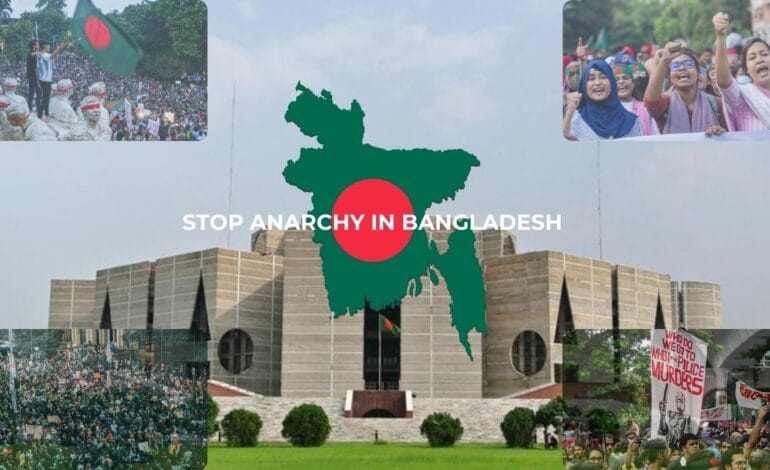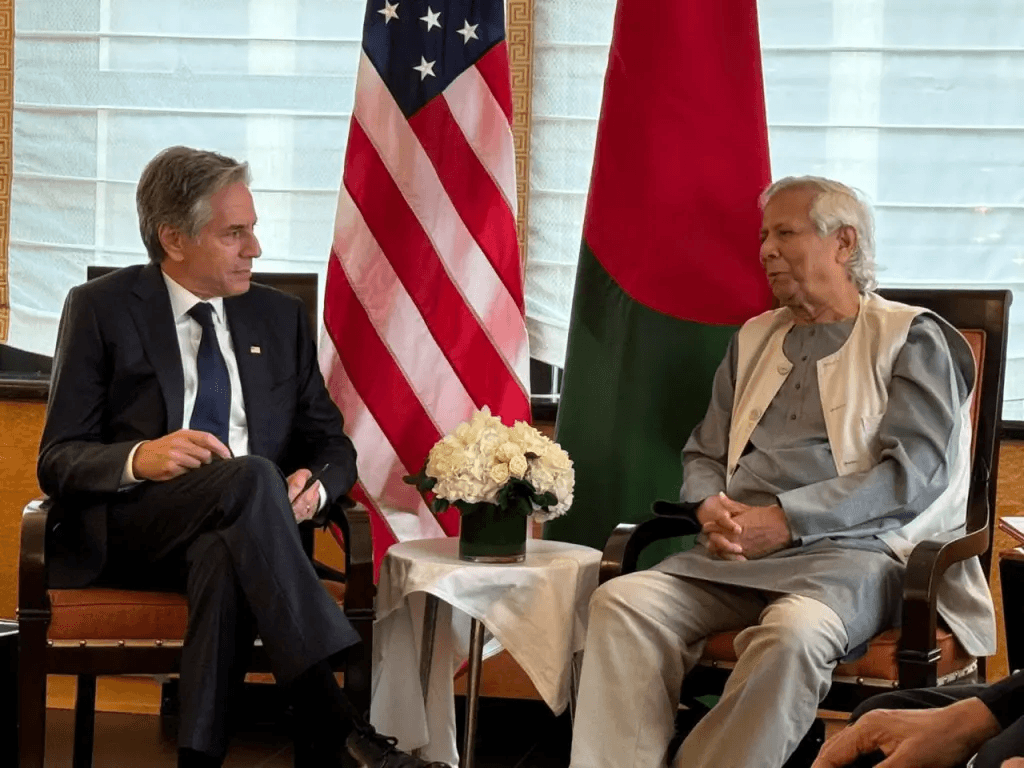Combating Anarchy in Bangladesh: A Call for Collective Action
Bangladesh, a country known for its resilience and economic growth, is facing a growing threat from anarchy. The recent surge in violent protests, vandalism, and lawlessness has raised concerns among

Bangladesh, a country known for its resilience and economic growth, is facing a growing threat from anarchy. The recent surge in violent protests, vandalism, and lawlessness has raised concerns among citizens, policymakers, and the international community. Anarchy, if left unchecked, can undermine the country’s stability, democratic institutions, and economic progress. This article examines the causes of anarchy in Bangladesh and proposes measures to address this pressing issue.
Several factors contribute to the rise of anarchy in Bangladesh:
- Political Polarisation: The country’s bitter political rivalry often leads to violent clashes between opposing parties, creating an environment conducive to anarchy.
- Social and Economic Inequality: Disparities in income, education, and access to resources have fueled frustration and discontent among marginalised communities.
- Lack of Effective Governance: Inadequate law enforcement, corruption, and inefficiency in public services have eroded trust in institutions.
- Extremist Ideologies: The spread of radical ideologies has contributed to the growth of extremist groups, which often resort to violence and intimidation.
The consequences of unchecked anarchy in Bangladesh are far-reaching:
- Human Rights Abuses: Anarchy leads to violence, injury, and loss of life, undermining the fundamental rights of citizens.
- Economic Instability: Destruction of property, disruption of businesses, and uncertainty deter investment, hindering economic growth.
- Social Unrest: Anarchy creates an atmosphere of fear, mistrust, and insecurity, affecting social cohesion and community relationships.
- Damage to International Reputation: Bangladesh’s global image suffers, impacting tourism, trade, and diplomatic relations.
Bangladesh is reeling under growing unrest and violence, threatening the country’s stability and democratic institutions. The recent surge in anarchy has claimed innocent lives, destroyed property, and dented Bangladesh’s international image. Experts point to political polarisation, socio-economic inequality, ineffective governance, and extremist ideologies as the root causes of this chaos. The consequences are dire: human rights abuses, economic instability, social unrest, and damage to Bangladesh’s reputation.
The government and citizens must unite to combat anarchy. The government must engage in inclusive dialogue with opposition parties, strengthen law enforcement, address corruption, and implement policies addressing socio-economic inequality. Citizens should promote peace, tolerance, and civic responsibility, support security forces, and demand accountability from elected representatives. International community urges calm and dialogue. Join the conversation using #StopAnarchyInBangladesh. Stay updated with our live blog and exclusive interviews.
Anarchy in Bangladesh poses a significant threat to the country’s stability, prosperity, and democratic values. Addressing the root causes and implementing effective solutions require collective action from the government, political parties, civil society, and citizens. By working together, Bangladesh can overcome this challenge, ensuring a peaceful, inclusive, and prosperous future for all.



